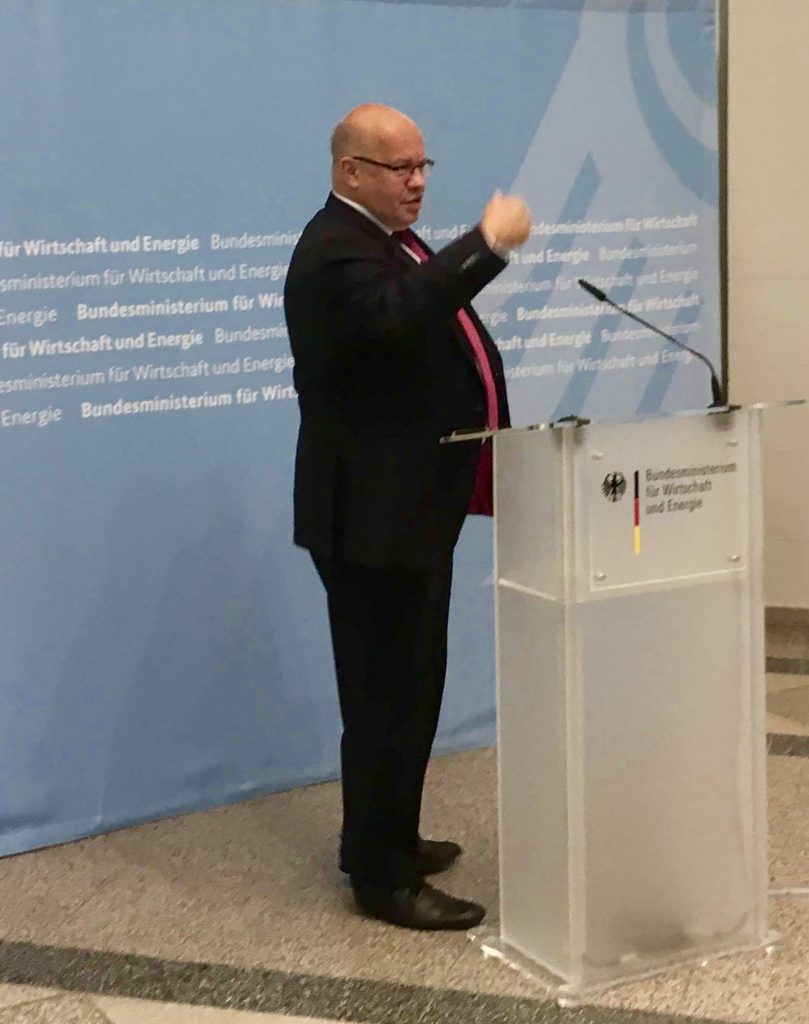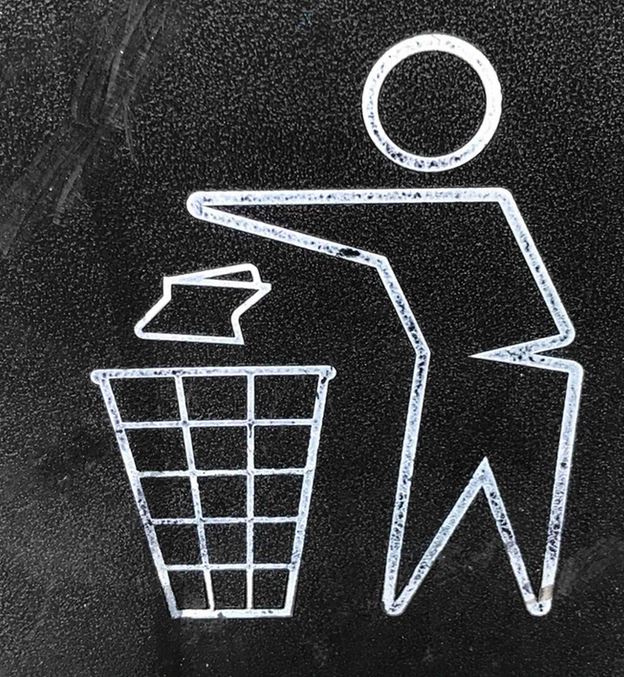
GWB10: the situation (1)
The arena was opened on 24.1.2020: On this day, the Federal Ministry of Economics and Technology presented the draft bill for the “GWB Digitization Act” (the 10th amendment of the German competition act). Now, supporters and opponents of an update of the antitrust rules can work on concrete proposals. Rupprecht Podszun looks at the situation after week 1 and focuses on the digital issues of the amendment.
Freedom or socialism?
Really nice SSNIPpets had been ready for “print” last Friday. But at 10 a.m. the Federal Ministry of Economics cut the SSNIPpets short by officially publishing the draft bill for a new competition law on the Internet. From then on, of course, the newsroom of our blog was like the editorial offices of a British tabloid paper when a royal couple decides to leave the family cartel and prove themselves in free competition: everything turned upside down. The SSNIPpets have been wilting in the drawer ever since, I guess I get back to them in the silly season.
First of all, the publication of the draft bill was a reassuring sign that the Grand Coalition (GroKo) in Germany’s government is still alive. We had spent about six months last year trembling at the question of whether the Social Democrats (SPD) would leave the GroKo. Then two people were elected as leaders of the SPD, who somehow stood for exactly that. Since then, we have not heard anything about the end of the GroKo anymore. It was probably enough to elect opponents of that coalition government into party leadership to secure the coalition government. Call it politics. In terms of competition policy, Saskia Esken, one of the two newcomers in office, enriches the discussion with occasional praise for socialism, which in her view is not so wrong after all. Hadn’t that strategy proved incredibly successful with Jeremy Corbyn? (Or without “successful”?).
Sussex Royal, Corbyn, are we talking English, now?
Corbyn was the second reference to the still United Kingdom, and we want to leave it at that. For all our love for the competition draft bill, we take note of the fact that there are other developments in the world, such as the withdrawal of the UK from the European Union.

This makes us very sad for various reasons: One of the most open countries in the world for decades is closing the windows. An important stimulus for free markets in the EU consultations has been lost. The line that the UK will take in competition policy lurches between market radicalism and protectionism at the extremes. Negotiations on future relations are tying up forces in Brussels that should actually be working on other issues. Ian Forrester, to name just one, leaves his job in the European institution (in his case it is the Court). And the Brexit vote itself, along with the election of Trump as US president, remains a frightening indicator of the state of information markets and political competition in the early 21st century. (By this I do not imply that voters would necessarily have made a different choice if the information basis had been different. But if even The Times cannot distinguish between the ECJ in Luxembourg and the ECtHR in Strasbourg, it was certainly not a well-informed choice).
Competition policy as a discovery procedure
With the reform bill the official battles are now being fought. At times when this blog was the only outlet for the draft of the draft, assosciations, policymakers and others could still shy away from comments.
I myself have been pretty outspoken already in different media. You know my opinion by now: I think the reform proposals regarding digital issues are largely to be welcomed. The legislator shows some courage, even if some details may still be altered. For me, the need for new rules is beyond question: the kind of economic revolution we have experienced in recent years and continue to experience presents challenges that can only be met with great difficulty using the existing rules. I know it is tough for lawyers to admit these difficulties (as it is difficult for lawyers to admit any shortcoming on their side). Yet, all studies, whether Schweitzer/Haucap/Kerber/Welker, EU Special Advisers, Furman Report, ACCC, Stigler Center, Kommission Wettbewerbsrecht4.0 point in the same direction: reform is necessary.
Instead of leaving enforcers and courts on their own with the role of data, with platforms and their network effects, with the shortcomings of applying the law, I would like to see a signal from the legislator as to where the journey should go. Peter Altmaier’s house now delivered. It may be that the route (to stay in that metaphore) may lead astray, take a detour or simply pass a nice stop (as it happens with Wolfsburg in German ICEs once in a while). But competition policy is nothing else but a “discovery procedure”.
Interim measures
In its press release on the publication of the draft bill, the Federal Ministry of Economics and Technology emphasises the facilitations for adopting interim measures (Section 32a GWB-E). The Minister himself is quoted as saying:
„And the Bundeskartellamt needs more clout and should in future be able to react more quickly and prevent abuses of market power at an early stage by taking interim measures.”
The President of the Bundeskartellamt, Andreas Mundt, probably thought to himself: Exactly, and how many new staff members will you grant us? Company bosses who are groaning under a million-Euro-fines may have a slightly different view of “more clout” for the Bundeskartellamt.

Adrian Deuschle and I looked at interim measures in the past year. They do not speed up proceedings, but tend to prolong them. They are there to secure a state of affairs, but this will be considered – also in future – especially in constellations such as the Commission’s Broadcom case: when the facts of the case are clear and the remedy easily determined. In more daring proceedings, Google Shopping or Facebook for instance, interim measures are very unlikely. For details see: Podszun/Deuschle, WuW 2019, pp. 613 ff. #selfpreferencing
The Lobbies
If the draft bill makes it into the Bundestag (the cabinet decision is
still pending), then the discussion should really get going again there in
the back rooms. We are already hearing about last-minute exemptions for
individual industries, and the GAFAs – Google, Amazon, Facebook, Apple – have
also woken up and are getting their machines up and running. In this context,
the news published by the Washington Post
(owned by Amazon boss Jeff Bezos) may be of interest: The big techies have spent
about half a billion dollars on lobbying in the past decade.
So it is only fair, that there is also lobbying from the other side: The NGOs Oxfam, Restrict Corporate Power, Entrepreneurial Green, Digital Courage and the Digital Society have called on legislators to enact stricter rules for digital gatekeepers. (Probably with a slightly lower budget). It seems to me that the non-governmental organisations only discovered the subject of antitrust law in recent years, triggered by Bayer/Monsanto. The alliance has mastered a steep learning curve. Here comes pressure from the left, which broadens the spectrum of opinion in competition policy.
In mid-February there will be a hearing of associations and a hearing of the Federal States, the Länder. The criticism of the most important association, the BDI (Federation of German Industries) is not as harsh as you may imagine.
First point of criticism: German and EU abuse law should not be allowed to develop apart. Divergent approaches, however, are perfectly with Art. 3 (2) sentence 2 of Regulation 1/2003, and it is – for example in the case of abuse of superior bargaining position – common and uncontroversial practice. The EU will probably not enact new rules on abuse any time soon. This, however, should not make member states sit and wait.
The second point of criticism is that #GWB10 makes it harder for German companies to become strong in the digital field. I am not convinced. It is (unfortunately!) not foreseeable that German companies will come into the focus of the new § 19a GWB-E – as an undertaking with paramount significance for competition across markets. The new provisions in § 20 GWB-E are aimed at making it easier for companies, including the German industry players, to make connections in the Internet of Things (not to mention the comfort letter in § 32c GWB-E). [Oh, that E by the way stands for “Entwurf” – draft. This is how we abbreviate that in Germany.]
The BDI explicitly demands: Access to data as before on a negotiation basis instead of interference of competition law. The BDI will know better what its members need, but my impression was that these data access rules should exist especially for BDI members so that they are not left out in the Internet of Things. In tough negotiations on data access, a company can starve to death on the outstretched arm of the negotiating partner. However, the follow-up questions on the data access claim (who, what, when where, why?) are still completely open – the BDI has a point here.
Questions on the new merger control regime
Big news compared to the draft we had presented here earlier is the new
possibility of the Federal Cartel Office to oblige Remondis companies to
notify all acquisitions even if the turnover thresholds are not otherwise met.
The requirements are extraordinarily low: the target must achieve at least 2
million euros in sales, 2/3 of these sales must be achieved in Germany (§ 39a
GWB-E). Otherwise, it is sufficient if the acquirer has a worldwide turnover of
EUR 250 million and there are “indications” that competition could be
restricted in Germany.

That is pretty vague for a new notification regime deluxe. Is it really necessary?
The German discussion centers around the case of Remondis, a waste disposal company that allegedly buys up small competitors that are only relevant on regional markets. You may call this “killer acquisitions”, somehow, even if unrelated to the Silicon Valley.
In the earliest version of a draft for the German merger regime, back in 1971, the legislator had thought into the other direction: it exempted small enterprises that were independent and had a turnover of less than 50 million Deutsche Mark. It is an interesting read, this 50-year-old document:
„Such mergers are not irrelevant from the point of view of competition policy, since large companies can also acquire or strengthen dominant positions through repeated takeovers of small and medium-sized enterprises. Nevertheless, it seems justified to exempt from merger control companies with sales revenues of no more than DM 50 million, since this is the only way for the entrepreneurs to fully exploit the assets of their company. (…) From the point of view of competition policy, the clause is justified because it can facilitate the decision to become independent and thus keep the market open for newcomers. Without the 50 million clause, self-employment would thus be burdened with an additional risk.“
Please note: Startups were called newcomers back then.
If such a notification deluxe rule is inserted, I would favour tougher criteria for the acquirer, and I would scrap the domestic turnover rule and reduce it to what is necessary under international law. This would at least make it more likely to have the next Facebook/WhatsApp in the merger files of the Bundeskartellamt.
This is the law-maker speaking
In the leading party in Parliament, the CDU, Dr. Matthias Heider is responsible for competition issues. He is the most important voice in parliament on the reform. (It has to be admitted that the voice of his Green-party colleague Katharina Dröge is louder at times, she is an economist with plenty ideas for reforming competition law. Yet, she is on the benches of the opposition.). Heider (a lawyer) issued a press release on the draft bill. This is important, because the legislator is speaking here:
„The draft bill offers great opportunities for the free development of medium-sized companies in the digital economy – on the one hand by curbing certain market foreclosure practices of the tech giants and on the other hand by creating additional legal certainty for the cooperation between companies.“
So, § 19a GWB-E and § 32c GWB-E will not meet opposition. But Heider is not completely satisfied:

„However, Heider is critical of a new provision according to which the Bundeskartellamt may oblige certain undertakings to notify any merger, even below the threshold of merger control. “This last-minute addition of the rule,” says Heider, “takes too little account of the legitimate interest of many smaller start-ups and medium-sized companies, whose corporate strategy is currently focused on an exit to a larger competitor.“
Word.
Btw, Mrs Dröge from the Green Party also gets
some criticism from Mr Heider for her “expropriation phantasies” that would
damage the German economy. Elizabeth Warren Katharina Dröge had said:
„If market power is too big, it must be possible to unbundle digital monopolies.“
Heider’s criticism may be seen as a little gesture of respect for the colleague. In non-digital terms, by the way, the Green Party recently tabled a motion in the Bundestag, to better protect farmers from excessive market power on the other side.

Heider and Dröge – it is not really a CDU / Green love affair (as some in Germany would love to see). Yet, with these protagonists (and others) we will see a lively and knowledgeable debate in Parliament. And that is more than we dare hope for these days.
Advice for the government
The Monopolies Commission has also made its voice heard with a “policy brief”. The Commission, headed by star economist Achim Wambach, is an independent government think tank for competition policy. The short statement, well … baffled me. This is the executive summary:
“The new types of abuse for companies with paramount cross-market significance should not be introduced in haste.
In the case of exploitative abuses, a causal link between dominant position and abusive behavior should still be present.
The companies affected by the proceedings should be required by law to cooperate more strongly if effective enforcement by the antitrust authorities cannot otherwise be ensured.
An increase in the merger notification thresholds and the associated lowering of competition protection should be combined with a targeted increase of merger review in regional markets.”
Actually, the Commission also had some positive points for the Ministry (if not in that summary). However, I am still stuck on the first sentence. § 19a GWB-E does not meet with the approval of the Monopolies Commission. There are too many open questions about the scope of application, the concrete prohibitions, the sanctions (the Commission is thinking here more of monitoring or regulation). True, there is a need for discussion. Yet: That is what the legislative process is for. The proposal had been on the table at least since 14 October 2019 (when we published it in the blog), before that the Furman Report had proposed a similar rule, in the past years we sat through 750 conference panels where we discussed new digital rules, and Google has a market share of 95 % in general search in Germany for 10 years. I think one can say a lot of things but not that a new rule for digital platforms comes “in haste”. Come on, let’s not wait ten more years, let’s discuss the details!
They also have a real crackerjack in that policy brief: The Monopolies Commission proposes a tougher merger control on regional markets by doubling the turnover of companies in merger control that are merely active in a maximum of three Länder. I take every bet that this will not be realised – it would hit half of the German Mittelstand probably – for instance all the companies dealing with the car manufacturers in the Länders Bavaria (the one with the beer festival) or Baden-Württemberg (the one where they discard their hyper-intelligence with unintelligible German).
No exemptions, please!
I take no bets on another question: Will there be special rules, privileges, exemptions for certain industries? Please not! But it happened again in the last amendment – in favour of the press publishers in § 30 GWB. And then there was this back-office merger of public savings bank service providers that failed due to the Bundeskartellamt (or so they say). Such a fiasco, the savings bank lobbyists in the Bundestag were clear about that, must never happen again. Since then, § 35 (2) Sentence 3 of the German competition act is a monument of special-interest-protection-turned-into-law.

The thought of special rules flashed through my mind when I read that the Bundeskartellamt has become active again with the Presse-Grosso, distributer cooperations for newspapers and magazines, and eliminated discrimination against lower-turnover titles through a minimum turnover criterion. I am sure, lobbyists could find a place in § 30 to remedy this latest intervention. But then, the Bundeskartellamt has also approved the cooperation of two press houses in Berlin, Berliner Morgenpost and Tagesspiegel, on the basis of the generous exemption § 30 (2b) GWB. Perhaps the publishers are satisfied for now.
I am more concerned about news from the health care system: Several mergers of hospitals were opposed by the Bundeskartellamt. Klinikum Stadt Soest and the Marienkrankenhaus were the last to be affected by tough merger review, and a case in Unna is pending.
According to information from the Allgemeine Zeitung the government of North-Rhine Westphalia (NRW, the Land with that beautiful capital city called Düsseldorf) is now thinking about relaxing the merger laws for hospitals. There could be a case – I am not sure – to reorganise the hospital sector. Yet, if this is done, the Ministries of Health should at least get the advice of the Bundeskartellamt when doing so before scrapping merger control altogether. An injection of free competition does not seem to be an entirely wrong medicine for this field.

Incidentally, political observers have not failed to notice that a merger of two hospitals in Gütersloh has also failed. Why is that relevant? Gütersloh is the constituency of Ralph Brinkhaus, who chairs the CDU/CSU parliamentary group in the Bundestag. Let’s hope that he doesn’t believe, out of false patriotism, that adherence to regulatory principles is like having to make a forest run with a pole across your mouth (Bismarck is said to have said that).
Why not close this blog post about law in the making with that Otto von Bismarck? You know the well-known quote attributed to him about laws and sausages. (Germans are experts in both fields.) Enjoy your meal!
2 thoughts on “GWB10: the situation (1)”
Beim Hinweis auf die hohen Lobbying-Ausgaben von GAFA musste ich an Richard Posner denken. Der meinte mal, Ineffizienzen beim Streben nach Monopolen rühren auch daher, dass Unternehmen viel Geld für Lobbying verschwenden (Posner, The Social Costs of Monopoly and Regulation, Journal of Political Economy 1975, 807, 812).